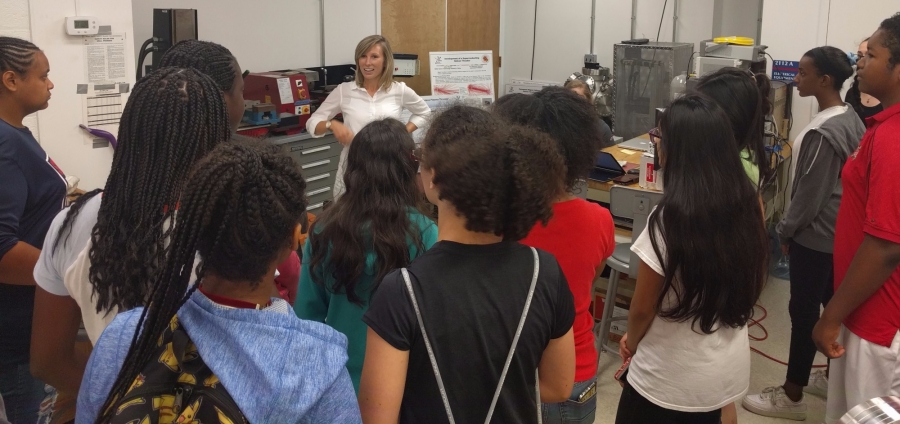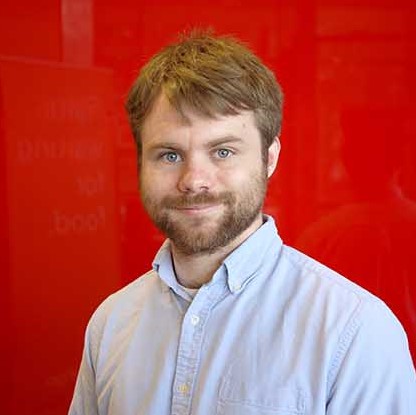Faculty, Staff, Student and Alumni Awards & Notes
- Details
- Published: Friday, January 17 2020 05:56
We proudly recognize members of our community who recently garnered major honors, authored books, began new positions and more.
Faculty and Staff Awards
-
Steve Anlage – Graduate Advising Award
-
Maissam Barkeshli – Richard A. Ferrell Fellowship
-
Mark Conners – Chair's Award
-
Janet Das Sarma – Chair's Certificate of Excellence
-
Sankar Das Sarma – Clarivate Analytics’ Highly Cited Researcher
-
Zohreh Davoudi – DOE Early Career Research Funding and 2019 Sloan Research Fellowship
-
Dennis Drew – American Physical Society Outstanding Referee
-
Alexey Gorshkov – Presidential Early Career Award for Scientists and Engineers (PECASE).
-
Mohammad Hafezi – Blavatnik Award Finalist
-
Donna Hammer – Chair's Certificate of Excellence
-
Daniel Lathrop – Distinguished Scholar-Teacher
-
Vlad Manucharyan – Google Faculty Research Award and DOE Early Career Research Funding
-
Howard Milchberg – American Physical Society Outstanding Referee
-
Chris Monroe – Willis Lamb Award and Clarivate Analytics’ Highly Cited Researcher
-
Jay Deep Sau – American Physical Society Outstanding Referee
-
Peter Shawhan – American Physical Society Fellow
-
Ian Spielman – Clarivate Analytics’ Highly Cited Researcher
-
Kristin Stenson – Chair's Certificate of Excellence
-
Samantha Suplee – Sibylle Sampson Award
-
Ellen Williams – Fellow of the American Association for the Advancement of Science and Michigan State Distinguished Alumni Award
Student Awards
-
Batoul Banihashemi – Ralph Myers Award
-
Dawid Brzeminski – Ralph Myers Award
-
Leonard Campanello – Monroe H. Martin Graduate Research Fellowship
-
Daniel Campbell – Ann G. Wylie Semester Dissertation Fellowship
-
Liz Friedman – Leon A. Herreid Science Fellowship
-
Hong Nhung Nguyen – Ruth M. Davis Fellowship
-
Pranava Jayanti – Kulkarni Fellowship
-
Soubhik Kumar – Monroe H. Martin Graduate Research Fellowship
-
Jillian Kunze – Merrill Presidential Scholarship
-
Kungang Li – Ralph Myers Award
-
Fangli Liu - Ann G. Wylie Semester Dissertation Fellowship
-
Dalia Ornelas Huerta – Monroe H. Martin Graduate Research Fellowship
-
Spandan Pathak – Ralph Myers Award
-
Abu Saleh Musa Patoary – Ralph Myers Award
-
Nicholas Poniatowski – Barry Goldwater Scholarship, Merrill Presidential Scholarship and Ralph Myers Award
-
Andrew Shaw – Joseph and Dorothy Sucher Graduate Prize in Relativistic Theoretical Physics
-
Ana Valdes-Curiel – Ruth M. Davis Fellowship
-
Yidan Wang – Ruth M. Davis Fellowship
-
Zhiyu Yin – Leon A. Herreid Science Fellowship and Thomas G. Mason Interdisciplinary Physics Fund
-
Mark Zic – Barry Goldwater Scholarship
Group Efforts
-
LHCb’s discovery of CP violation was named a Physics World Breakthrough of the Year finalist. More
-
The European Physical Society High Energy and Particle Physics Prize went to the DØ and CDF collaborations, which include Nick Hadley, Sarah Eno, Drew Baden, Greg Sullivan, and Kara Hoffman. More
-
The Society of Physics Students won an Outstanding Chapter Award from the SPS National Office. More
-
A team led by Chris Monroe won the overall Invention of the Year Award at Innovate Maryland 2019 for “Cryogenic Ion Trapping and Storage System for Quantum Information.” Monroe’s early-stage quantum computing company IonQ also took home the prize for Startup of the Year. More
Alumni Notes
-
Damian Blazy (B.S. ’02) was named a principal in the Los Angeles office of OpenGate Capital.
-
Joel Dahlin (Ph.D. ’15) received the AIP Publishing Ronald Davidson Award.
-
Alexei Fedotov (Ph.D. ’97) received the Science & Technology Award of Brookhaven National Lab.
-
Mark Harley (B.S. ’07) joined the faculty of Watchung Hills Regional High School in Warren, N.J., as a physics teacher.
-
Ruth Kastner (B.S. ’82, M.S. ’92) published Corralling quantum cats: from Cheshire cat to Schrodinger's cat, World Scientific Publishing Company, 2019.
-
James P. Lavine (Ph.D. ’71) published Time-Dependent Quantum Mechanics of Two-Level Systems, World Scientific Publishing Company, 2019.
-
John Martyn (B.S. ’19) received the Barry Goldwater Scholarship and Ralph Myers Award.
-
Thomas Mason (B.S. ’89) was named Fellow of the American Association for the Advancement of Science.
-
Ana Maria Rey (Ph.D. ’04) was named Blavatnik National Laureate in Physical Sciences & Engineering.
-
Gareth Roberg-Clark (Ph.D. ’19) received a NERSC Early Career HPC Achievement Award.















